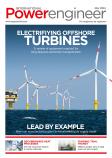The UK government has announced that its policy instrument of choice to encourage new nuclear build is a strong carbon market in Europe. If the European market is unable to deliver this, then additional UK incentives will be introduced to prop up the value of emission credits.
The UK energy review has come out strongly in favour of energy efficiency measures, renewable energy and new nuclear build.
However, says energy analysts Datamonitor, the targets and incentives laid out for nuclear are noticeably weaker and less substantive than for the other two technology areas.
The measures in place to support energy efficiency include; improvements in building codes, maintaining a household energy efficiency commitment and mandating the delivery of improved consumption data to consumers.
Renewable energy also has very solid support in the form of a clearly defined target of 20 per cent penetration in 2020. This is backed up with the policy lever of the Renewable Obligation (RO) that penalises suppliers failing to install their share of this capacity, says Datamonitor energy analyst Matthew Cowie. In contrastno target penetration or specific policy instrument has been outlined to support new nuclear build."
Instead of a specific mechanism to support nuclearthe review sets out case studies designed to demonstrate the financial viability of nuclear which is explained in annexes of the review.
Under the base case scenariowhere carbon has no value and a gas price of 36.6p/therm is usedthe expected cost for nuclear (£38/MWh) is greater than that for any thermal power plant.
In fact the review concludes that it is not until the price of carbon climbs to EUR25/tonne that nuclear becomes competitive with CCGTthe most expensive of the thermal plants. A high gas price (53p/therm) would also see nuclear become cheaper than CCGT (combined cycle gas turbine)however still above the cost of advanced coal power plants.
While the European Emission Trading Scheme (ETS) currently values a tonne of carbon at EUR16the market is not mature and has seen very high levels of volatility since its official opening in January 2005.
In its infancya tonne traded for around EUR5which rose to over EUR30 in Aprilfell to EUR9 and then rose to its current level. A great deal of this volatility is created by uncertainty about which countries will meet their targets and which countries have the political willpower to force through the necessary changes in their energy consumption.
ETS Phase I certainly has not delivered a strong price signal. The review also seems to concede that neither will the second phasewith the government indeed focussing on lobbying for strengthening of the scheme in Phase III from 2012 onwards.
"It seems likely that the government will have to move to introduce specific UK measures to backstop the long-term price of carbon in the UK Datamonitor energy analyst Paul Stewart says. This will be required sooner rather than laterprobably in the life of this parliamentif the commercial sector is to start sinking the considerable amount of money required into preparation for new nuclear plant development."
For more informationvisit www.datamonitor.com
"
















